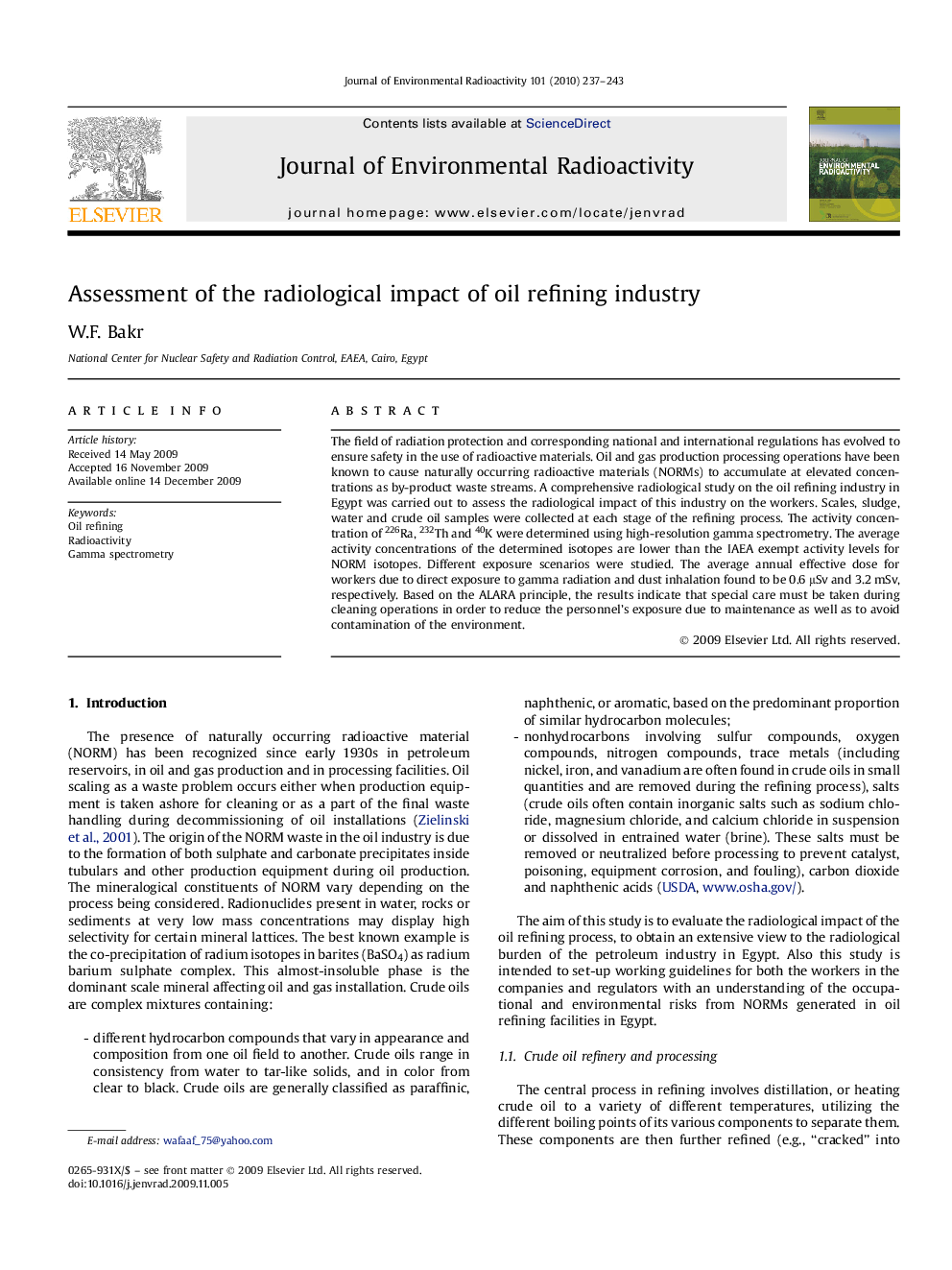| Article ID | Journal | Published Year | Pages | File Type |
|---|---|---|---|---|
| 1738532 | Journal of Environmental Radioactivity | 2010 | 7 Pages |
Abstract
The field of radiation protection and corresponding national and international regulations has evolved to ensure safety in the use of radioactive materials. Oil and gas production processing operations have been known to cause naturally occurring radioactive materials (NORMs) to accumulate at elevated concentrations as by-product waste streams. A comprehensive radiological study on the oil refining industry in Egypt was carried out to assess the radiological impact of this industry on the workers. Scales, sludge, water and crude oil samples were collected at each stage of the refining process. The activity concentration of 226Ra, 232Th and 40K were determined using high-resolution gamma spectrometry. The average activity concentrations of the determined isotopes are lower than the IAEA exempt activity levels for NORM isotopes. Different exposure scenarios were studied. The average annual effective dose for workers due to direct exposure to gamma radiation and dust inhalation found to be 0.6 μSv and 3.2 mSv, respectively. Based on the ALARA principle, the results indicate that special care must be taken during cleaning operations in order to reduce the personnel's exposure due to maintenance as well as to avoid contamination of the environment.
Related Topics
Physical Sciences and Engineering
Energy
Nuclear Energy and Engineering
Authors
W.F. Bakr,
